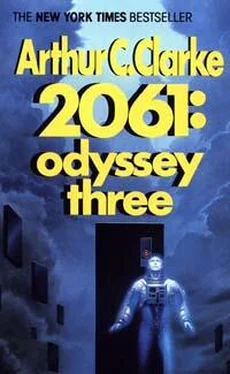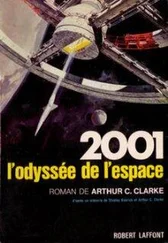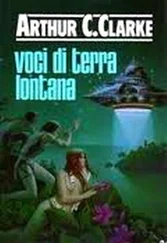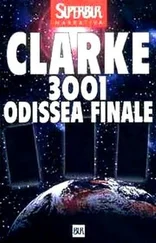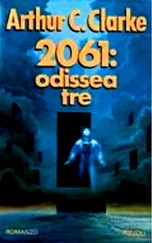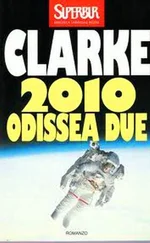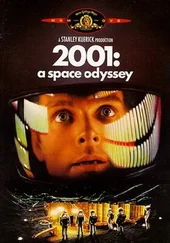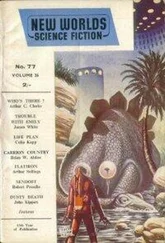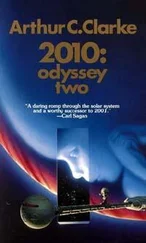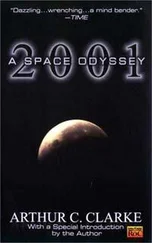Arthur Clarke - 2061 - Odyssey Three
Здесь есть возможность читать онлайн «Arthur Clarke - 2061 - Odyssey Three» весь текст электронной книги совершенно бесплатно (целиком полную версию без сокращений). В некоторых случаях можно слушать аудио, скачать через торрент в формате fb2 и присутствует краткое содержание. Жанр: Фантастика и фэнтези, на английском языке. Описание произведения, (предисловие) а так же отзывы посетителей доступны на портале библиотеки ЛибКат.
- Название:2061: Odyssey Three
- Автор:
- Жанр:
- Год:неизвестен
- ISBN:нет данных
- Рейтинг книги:3 / 5. Голосов: 1
-
Избранное:Добавить в избранное
- Отзывы:
-
Ваша оценка:
- 60
- 1
- 2
- 3
- 4
- 5
2061: Odyssey Three: краткое содержание, описание и аннотация
Предлагаем к чтению аннотацию, описание, краткое содержание или предисловие (зависит от того, что написал сам автор книги «2061: Odyssey Three»). Если вы не нашли необходимую информацию о книге — напишите в комментариях, мы постараемся отыскать её.
2061: Odyssey Three — читать онлайн бесплатно полную книгу (весь текст) целиком
Ниже представлен текст книги, разбитый по страницам. Система сохранения места последней прочитанной страницы, позволяет с удобством читать онлайн бесплатно книгу «2061: Odyssey Three», без необходимости каждый раз заново искать на чём Вы остановились. Поставьте закладку, и сможете в любой момент перейти на страницу, на которой закончили чтение.
Интервал:
Закладка:
'A few of these features are hundreds – or even thousands – of kilometres long, and look rather like the illusory canals that Percival Lowell and other early-twentieth-century astronomers imagined they'd seen on Mars.
'But Europa's canals aren't an illusion, though of course they're not artificial. What's more, they do contain water – or at least ice. For the satellite is almost entirely covered by ocean, averaging fifty kilometres deep.
'Because it's so far from the Sun, Europa's surface temperature is extremely low – about a hundred and fifty degrees below freezing. So one might expect its single ocean to be a solid block of ice.
'Surprisingly, that isn't the case because there's a lot of heat generated inside Europa by tidal forces – the same forces that drive the great volcanoes on neighbouring Io.
'So the ice is continually melting, breaking up and freezing, forming cracks and lanes like those in the floating ice sheets in our own polar regions. It's that intricate tracery of cracks I'm seeing now; most of them are dark and very ancient – perhaps millions of years old. But a few are almost pure white; they're the new ones that have just opened up, and have a crust only a few centimetres thick.
'Tsien has landed right beside one of these white streaks – the fifteen-hundred-kilometre-long feature that's been christened the Grand Canal. Presumably the Chinese intend to pump its water into their propellant tanks, so that they can explore the Jovian satellite system and then return to Earth. That may not be easy, but they'll certainly have studied the landing site with great care, and must know what they're doing.
'It's obvious, now, why they've taken such a risk – and why they claim Europa. As a refuelling point, it could be the key to the entire Solar System...'
But it hadn't worked out that way, thought Sir Lawrence, as he reclined in his luxurious chair beneath the streaked and mottled disc that filled his artificial sky. The oceans of Europa were still inaccessible to mankind, for reasons which were still a mystery. And not only inaccessible, but invisible: since Jupiter had become a sun, both its inner satellites had vanished beneath clouds of vapour boiling out from their interiors. He was looking at Europa as it had been back in 2010 – not as it was today.
He had been little more than a boy then, but could still remember the pride he felt in knowing that his countrymen – however much he disapproved of their politics – were about to make the first landing on a virgin world.
There had been no camera there, of course, to record that landing, but the reconstruction was superbly done. He could really believe that was the doomed spaceship dropping silently out of the jetblack sky towards the Europan icescape, and coming to rest beside the discoloured band of recently frozen water that had been christened the Grand Canal.
Everyone knew what had happened next; perhaps wisely, there had been no attempt to reproduce it visually. Instead, the image of Europa faded, to be replaced by a portrait as familiar to every Chinese as Yuri Gagarin's was to every Russian.
The first photograph showed Rupert Chang on his graduation day in 1989 – the earnest young scholar, indistinguishable from a million others, utter1y unaware of his appointment with history two decades in the future.
Briefly, to a background of subdued music, the commentator summed up the highlights of Dr Chang's career, until his appointment as Science Officer aboard Tsien. Cross-sections in time, the photographs grew older, until the last one, taken immediately before the mission.
Sir Lawrence was glad of the planetarium's darkness; both his friends and his enemies would have been surprised to see the moisture gathering in his eyes as he listened to the message that Dr Chang had aimed towards the approaching Leonov, never knowing if it would be received.
'... know you are aboard Leonov... may not have much time... aiming my suit antenna where I think...'
The signal vanished for agonizing seconds, then came back much clearer, though not appreciably louder.
'... relay this information to Earth. Tsien destroyed three hours ago. I'm only survivor. Using my suit radio – no idea if it has enough range, but it's the only chance. Please listen carefully. THERE IS LIFE ON EUROPA. I repeat: THERE IS LIFE ON EUROPA...
The signal faded again.
'... soon after local midnight. We were pumping steadily and the tanks were almost half full. Dr Lee and I went out to check the pipe insulation. Tsien stands – stood – about thirty metres from the edge of the Grand Canal. Pipes go directly from it and down through the ice. Very thin – not safe to walk on. The warm upwelling...'
Again a long silence.
'... no problem – five kilowatts of lighting strung up on the ship. Like a Christmas tree – beautiful, shining right through the ice. Glorious colours. Lee saw it first – a huge dark mass rising up from the depths. At first we thought it was a school of fish – too large for a single organism – then it started to break through the ice.
'... like huge strands of wet seaweed, crawling along the ground. Lee ran back to the ship to get a camera – I stayed to watch, reporting over the radio. The thing moved so slowly I could easily outrun it. I was much more excited than alarmed. Thought I knew what kind of creature it was – I've seen pictures of the kelp forests off California – but I was quite wrong...
I could tell it was in trouble. It couldn't possibly survive at a temperature a hundred and fifty below its normal environment. It was freezing solid as it moved forward – bits were breaking off like glass – but it was still advancing towards the ship – a black tidal wave, slowing down all the time.
'I was still so surprised that I couldn't think straight and I couldn't imagine what it was trying to do.
'... climbing up the ship, building a kind of ice tunnel as it advanced. Perhaps this was insulating it from the cold – the way termites protect themselves from Sunlight with their little corridors of mud.
'... tons of ice on the ship. The radio antennas broke off first. Then I could see the landing legs beginning to buckle – all in slow motion, like a dream.
'Not until the ship started to topple did I realize what the thing was trying to do – and then it was too late. We could have saved ourselves – if we'd only switched off those lights.
'Perhaps it's a phototrope, its biological cycle triggered by the Sunlight that filters through the ice. Or it could have been attracted like a moth to a candle. Our floodlights must have been more brilliant than anything that Europa has ever known.
'Then the ship crashed. I saw the hull split, a cloud of snowflakes form as moisture condensed. All the lights went out, except for one, swinging back and forth on a cable a couple of metres above the ground.
'I don't know what happened immediately after that. The next thing I remember, I was standing under the light, beside the wreck of the ship, with a fine powdering of fresh snow all around me. I could see my footsteps in it very clearly... I must have run there; perhaps only a minute or two had elapsed...
'The plant – I still thought of it as a plant – was motionless. I wondered if it had been damaged by the impact; large sections – as thick as a man's arm -had splintered off, like broken twigs.
'Then the main trunk started to move again. It pulled away from the hull, and began to crawl towards me. That was when I knew for certain that the thing was light-sensitive: I was standing immediately under the thousand-watt lamp, which had stopped swinging now.
'Imagine an oak tree – better still, a banyan with its multiple trunks and roots – flattened out by gravity and trying to creep along the ground. It got to within five metres of the light, then started to spread out until it had made a perfect circle around me. Presumably that was the limit of its tolerance -the point at which photo-attraction turned to repulsion. After that, nothing happened for several minutes. I wondered if it was dead – frozen solid at last.
Читать дальшеИнтервал:
Закладка:
Похожие книги на «2061: Odyssey Three»
Представляем Вашему вниманию похожие книги на «2061: Odyssey Three» списком для выбора. Мы отобрали схожую по названию и смыслу литературу в надежде предоставить читателям больше вариантов отыскать новые, интересные, ещё непрочитанные произведения.
Обсуждение, отзывы о книге «2061: Odyssey Three» и просто собственные мнения читателей. Оставьте ваши комментарии, напишите, что Вы думаете о произведении, его смысле или главных героях. Укажите что конкретно понравилось, а что нет, и почему Вы так считаете.
